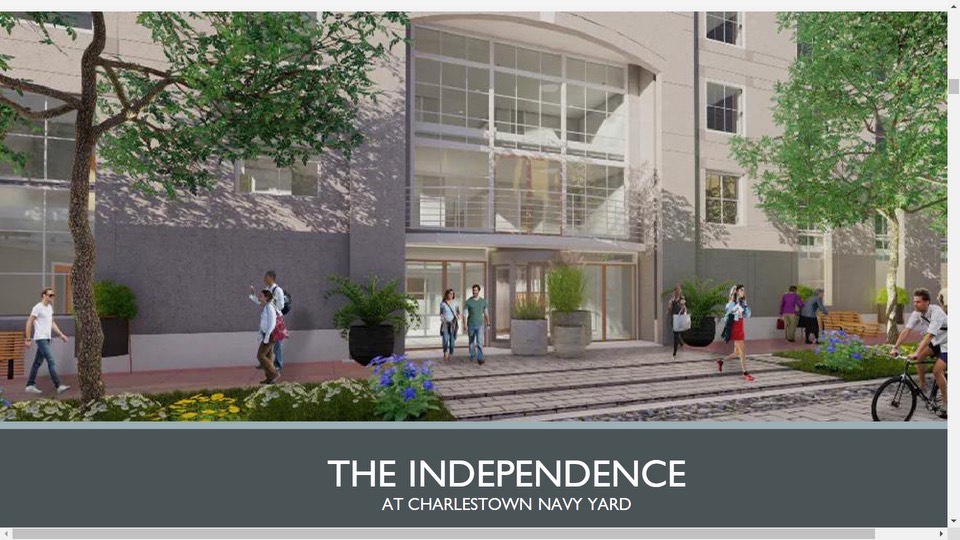
Charlestown residents sue BPDA over Navy Yard affordable housing project
Charlestown residents are demanding the Boston Planning & Development Agency rescind approval of an affordable housing project at the Charlestown Navy Yard because the group says officials ignored concerns over potential “significant adverse impacts” to the neighborhood.
The BPDA in December approved an application from city-based nonprofits, the Planning Office for Urban Affairs and St. Francis House, to transform the former Constitution Inn into 100 affordable housing units for individuals facing homelessness and mental health and substance abuse issues.
The 11 residents who filed the suit in Suffolk Superior Court this week say the BPDA’s decision is “based on errors of law, is unsupported by substantial evidence, and is arbitrary and capricious.” Plaintiffs allege that the agency ignored “the existence of over 100 letters and emails” submitted to the agency outlining community concerns.
Residents also contend that the BPDA skipped over review requirements outlined in the city’s zoning code and “bypassed and waived the public review requirement and failed to allow the assembly of an Impact Advisory Group.”
“Most egregiously,” the suit states, “the BPDA’s conduct in precluding the public to participate in the review process amounts to a violation of the Plaintiffs’ right to assemble, right to free speech, and right to engage in petitioning activity, as guaranteed under the First Amendment to the U.S. Constitution
The project looks to provide 100 units of 100% affordable living opportunities, 52 of which are permanently affordable for households selected through a lottery system. The remaining 48 are for permanent supportive housing apartments leased to 32 women and 16 veterans who are determined to meet eligibility requirements, according to documents.
Officials, responding to public comment, highlighted how they felt the proponent “engaged in a thorough community process.”
“The project team has taken every opportunity to meet the neighbors to discuss the details of this project,” officials stated in late November. “After a year of in-person and virtual large group and small group meetings, the Planning Office for Urban Affairs, Archdiocese of Boston and St. Francis House submitted their formal proposal that addressed several concerns raised through the community process over that period of time.”
Residents raised concerns over safety and security of the area, a lack of parking and how the project could lead to the “overburdening of the local medical system,” among others.
“Medical professionals have expressed opposition to the Proposed Project, as Charlestown does not have the requisite resources or services to support the homeless population,” the suit states, “the majority of which have complex health problems—both mental and physical— and are often dealing with substance abuse, and it would overburden an already severely taxed medical system in the Charlestown area.”
But in a December memorandum, officials highlighted how the project is “close to existing rapid transit, transportation, and bus routes for residents, allowing for easy access to various amenities.”
“Moreover, with the range of incomes and backgrounds the completed Project will serve,” officials wrote, “this redevelopment plan will strengthen and build to the socioeconomic diversity of the neighborhood and increase the client or customer base for the resources in the area, while setting residents up for success.”


